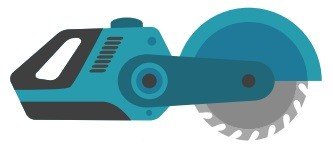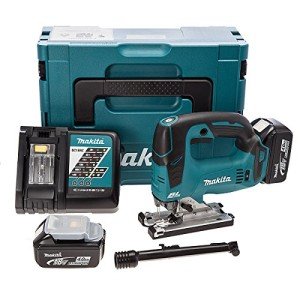10 Of The Top Facebook Pages Of All Time About Power Tool Sale
Mildred
0
5
12.24 10:35
 Power Tool Sales and Marketing Strategies for B2B Retailers
Power Tool Sales and Marketing Strategies for B2B RetailersPower tools are essential for both consumers and professionals. The demand for power tools is at or close to pre-pandemic levels despite a slowdown due to the COVID-19 epidemic in 2021.
Home Depot is the leader in sales of power tools based on dollar share. Lowe's is not far behind. Both are competing with power tools made in China.
Tip 1: Be committed to a brand
Many industrial product manufacturers place more emphasis on sales over marketing. This is because a long-term sale requires a lot back-and forth communication and detailed product knowledge. This type of communication is not ideal for marketing that is based on emotion.
But, companies that produce industrial tools need to rethink their marketing strategy. The digital world has raced past traditional manufacturers who rely on a small circle of distributors and retailers for sales.
Brand loyalty is a major aspect in the sales of power tools. When a customer is adamant about a particular brand and brand, they are less responsive to competitor's messages. They are also more likely to buy the client's products again and to recommend them to friends and family.
You need a well-planned plan to be successful in the US market. This means adapting your tools to local needs and positioning brands in a way that is competitive, and Powertools Uk leveraging marketing platforms and distribution channels. Collaboration with local authorities as well as associations and experts is also crucial. By doing so, you can be confident that your power tools will be in compliance with the regulations of the country and standards.
Tip 2: Be aware of Your Products
Retailers must be aware of the products they offer particularly in a market that places such a high value on product quality tools online. This will enable them to make informed choices about the products they sell. This knowledge could also be the difference between a successful sale and a bad one.
For instance knowing which tool is best suited to specific projects will allow you to connect your customer with the right tool to meet their requirements. You'll earn trust and a sense of loyalty among your customers. It will also give you assurance that you're offering the complete solution.
Also, knowing the latest trends in DIY culture will help you comprehend what your customers want. As an example the increasing number of homeowners are taking on home renovations that require the use of power tools. This can result in a surge in the sale of power tools.
According to Durable IQ, DeWalt leads in power tool unit share, which is 16%, while Ryobi and Craftsman brands have seen their share decline year-over-year. However, both online Tools Store and in-store purchases are increasing.
Tip 3: Offer Full-Service Repair
The majority of consumers purchase power tools to repair a broken one or to tackle a new project. Both offer the possibility of upselling or adding on sales.
According to the Home Improvement Research Institute's (HIRI) 2020 Power Tools and Accessories Product Purchase Tracking Study 35 percent of purchases of power tools resulted from a planned replacement. These customers may require additional accessories or upgrade to a higher-performing model.
If your customer is an experienced DIYer or just starting out in the hobby, they'll likely require replacing their power tools' carbon brushes as well as drive belts and power cords over time. Making sure they are up to date with these essentials will allow your customer to make the most of their investment.
When buying power tools, technicians look at three aspects: the tool's application, the power source and safety. These factors aid technicians in making educated decisions about the most suitable tools to use in their maintenance and repairs. This helps them improve the performance of their tools and lower the cost of ownership.
Tip 4: Keep current with the latest technology
For instance, the most recent power tools feature intelligent technology that enhances users' experience and differentiates them from other brands that still depend on old-fashioned battery technology. B2B wholesalers who stock and sell these tools can boost sales by targeting professionals and contractors who are tech-savvy.
Karch's company, which has over 30 years of experience and a 12,000 square foot department for tools is a testimony to the importance of staying current with the latest technologies. He says that manufacturers are constantly changing their product designs. "They used to hold their designs for five or 10 years, but now they're changing them each year."
In addition to embracing the latest technologies, B2B wholesalers should also be looking to improve existing models. By incorporating lightweight materials as well as adjustable handles, wholesalers can reduce fatigue from prolonged use. These features are crucial for many contractors working in the field who utilize the tools over a long period of time. The power tool industry is divided between consumer and professional groups. This means that the major players are constantly striving to improve their designs and develop new features in order to appeal to a wider public.
Tip 5: Make an Point of Sale
The e-commerce market has changed the power tools market. Data collection methods have improved, allowing business professionals to gain a better understanding of the market. This helps them develop more effective marketing and inventory strategies.
Point of sale (POS) data, for instance, allows you to keep track of the types of projects that DIYers are working on when purchasing power tools and accessories. Knowing what projects your customers are working on enables you to increase sales and provide extras. It allows you to anticipate the needs of your customers, so that you always have the appropriate products on hand.
You can also utilize transaction data to spot trends in the market and adjust production cycles in line with these trends. For instance, you can utilize this information to track fluctuations in your brand's or the market share of your retail partners and help you adapt your product strategies to consumer preferences. POS data can also be used to improve inventory levels, which reduces the risk of stocking up. It also helps to evaluate the effectiveness of promotional campaigns.
Tip 6: Establish a Point of Service
Power tools are a complicated market that is high-profit and requires a substantial amount of marketing and sales efforts to remain in the game. The traditional methods to gain an advantage in this field have been by establishing pricing or positioning of products, but these methods are no longer effective in today's multichannel marketplace in which information is dispersed so quickly.
Retailers who focus on service are more likely to keep customers and build brand loyalty. Mike Karch, the president of Nue's Hardware and Tools, located in Menomonee Falls, Wisconsin, runs a 12,000 square-foot power tool department. At first, the department offered various brands, but as he began listening to customers who were contractors and found that the majority were brand loyal.
To be successful in their customers' business, Karch and his team first ask customers what they would like to accomplish using the tool, before showing them the options available. This gives them the confidence to recommend the right tool for a job, and creates trust with customers. Customers who know their product are less likely to blame their vendor for a malfunctioning tool on the job.
Tip 7: Be a customer service guru
The market for power tools has become a highly competitive category for retailers of hardware. Those who are successful in this area tend to be more devoted to a single brand rather than to carry a variety of brands. The size of the space a retailer has to dedicate to this category could also play a role in how many brands it can carry.
When customers come in to purchase an electric tool they may need assistance selecting the right product. Sales associates can offer professional advice to customers looking to replace a damaged tool or are planning the renovation of their home.
Mike Karch, president of Nue's Hardware and Tools in Menomonee Falls, Wisconsin, says his store's sales associates are educated to ask the right questions to make the sale. He says they start by asking the customer what they intend to use the product. "That's how you decide what kind of tool store online they require," he says. The next step is to inquire about the project and what kind of experience the client has with various types of projects.
Tip 8: Create an End of Warranty
The makers of power tools vary widely in their warranty policies. Certain manufacturers offer a full warranty, whereas others are more limited or do not offer warranties for certain tools. Before making a purchase it is crucial that the retailer understands the distinctions. Customers will only buy tools from companies who guarantee their products.
Mike Karch is the president of Nue's Hardware and Tools, located in Menomonee, Wisconsin. He has an 12,000 square foot power tool department as well as repair shop on site that repairs 50 different types of tools. He has learned that many of his clients are brand loyal. So, he chooses to carry a limited number of brands instead of trying to carry samples of different products.
 He also likes the fact that his employees have the opportunity to have one-on-one meetings with vendors to discuss new products and provide feedback. This kind of interaction is vital since it builds trust between the store's clients and employees. Good relationships with suppliers can even lead to discounts for future purchases.
He also likes the fact that his employees have the opportunity to have one-on-one meetings with vendors to discuss new products and provide feedback. This kind of interaction is vital since it builds trust between the store's clients and employees. Good relationships with suppliers can even lead to discounts for future purchases. 